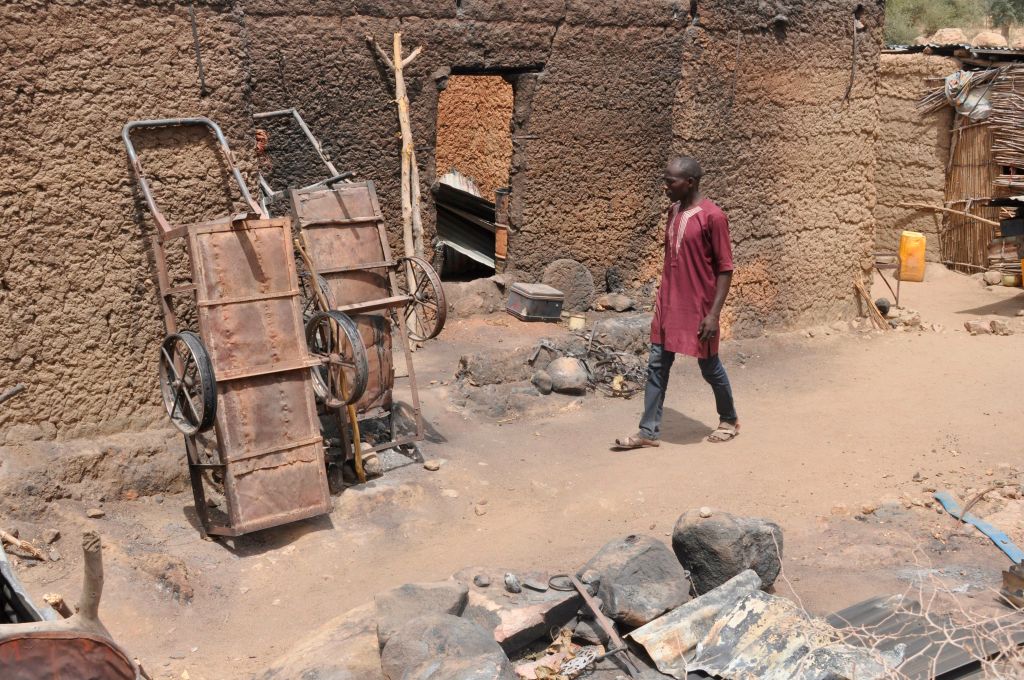Boko Haram on Kidnapping Rampage in Cameroon
ADF STAFF
Touhoulia Elie slumped in his chair in the middle of Mbah-Laindé village in Cameroon as he spoke to a reporter.
The young farmer lifted his shirt to show the scars on his back, a painful reminder of being kidnapped by extremists while he was harvesting crops.
“When they brought me to their camp after days walking, they beat me, wounding me in the head,” he told AfricaNews website in an October 24 video. “Some of them smoked and put out their cigarettes on my back.
“They wanted to hang me. They passed a rope around my neck and pulled me to the ground as one pulls a tree.”
Kidnapping in north Cameroon became a lucrative business in recent years as Boko Haram militants expanded their operations in the Lake Chad region.
Sixty people were kidnapped and held for ransom over the previous three months, according to the mayor of Touboro, a town about 12 kilometers east of Mbah-Laindé.
“From January to today, there have been hundreds of kidnappings,” Celestin Yandal told AfricaNews. “The ransoms that are paid are estimated in millions of CFA francs. There is no precise figure.
“It is a serious matter, because former hostages mention a whole group of hundreds of people, who, once they’ve operated on the Cameroonian side in our villages, retreat to the Chadian side.”
Ransom is a critical source of financing for Boko Haram, which also takes hostages to use as recruits, suicide bombers and brides for its fighters.
In northern Cameroon’s Mayo Tsanaga and Mayo Sava departments near the Nigerian border, Boko Haram militants have kidnapped hundreds of people and forced them to work as farmers.
According to the South Africa-based Institute for Security Studies (ISS), economic gain is the main motivation for these abductions.
“The attacks often occur late at night,” ISS researcher Remadji Hoinathy wrote in an October 26 article. “Armed groups of about four to 10 people storm houses, sometimes firing shots in the air to dissuade residents from resisting.”
The kidnappers take their victims across the border into Chad, the Central African Republic and Nigeria or keep them in Cameroonian hideouts.
“The most targeted villages are situated in rural areas with little or no state presence, including police, gendarmerie or military,” Hoinathy wrote. “It takes time for information to reach the security forces when incidents occur.”
ISS research has shown how Boko Haram fighters and bandits have joined forces in Nigeria to commit crimes, including kidnapping. Hoinathy suggested that the same collaboration could have expanded to Cameroon.
Violence committed by Boko Haram militants has affected tens of millions of people in the Lake Chad region.
Since Boko Haram began launching attacks in northeastern Nigeria in 2009, more than 36,000 people have been killed in the region, according to the United Nations Refugee Agency. More than 3 million people have fled their homes.
Researchers suggest that the actual number of people killed is much higher due to unreported attacks and the difficulty of confirming details in remote locations.
Ilaria Allegrozzi, senior Africa researcher at Human Rights Watch, decried the attacks and kidnappings.
“Boko Haram is waging a war on the people of Cameroon at a shocking human cost,” she said. “As Cameroon’s Far North region increasingly becomes the epicenter of Boko Haram’s violence, Cameroon should urgently adopt and carry out a new, rights-respecting strategy to protect civilians at risk in the Far North.”
In Mbah-Laindé, Elie’s kidnapping traumatized the entire village, which depends upon agriculture and livestock trade for survival.
“Look at me now,” he said. “My condition doesn’t enable me to go to the field anymore.
“We are all afraid to go there.”


Comments are closed.